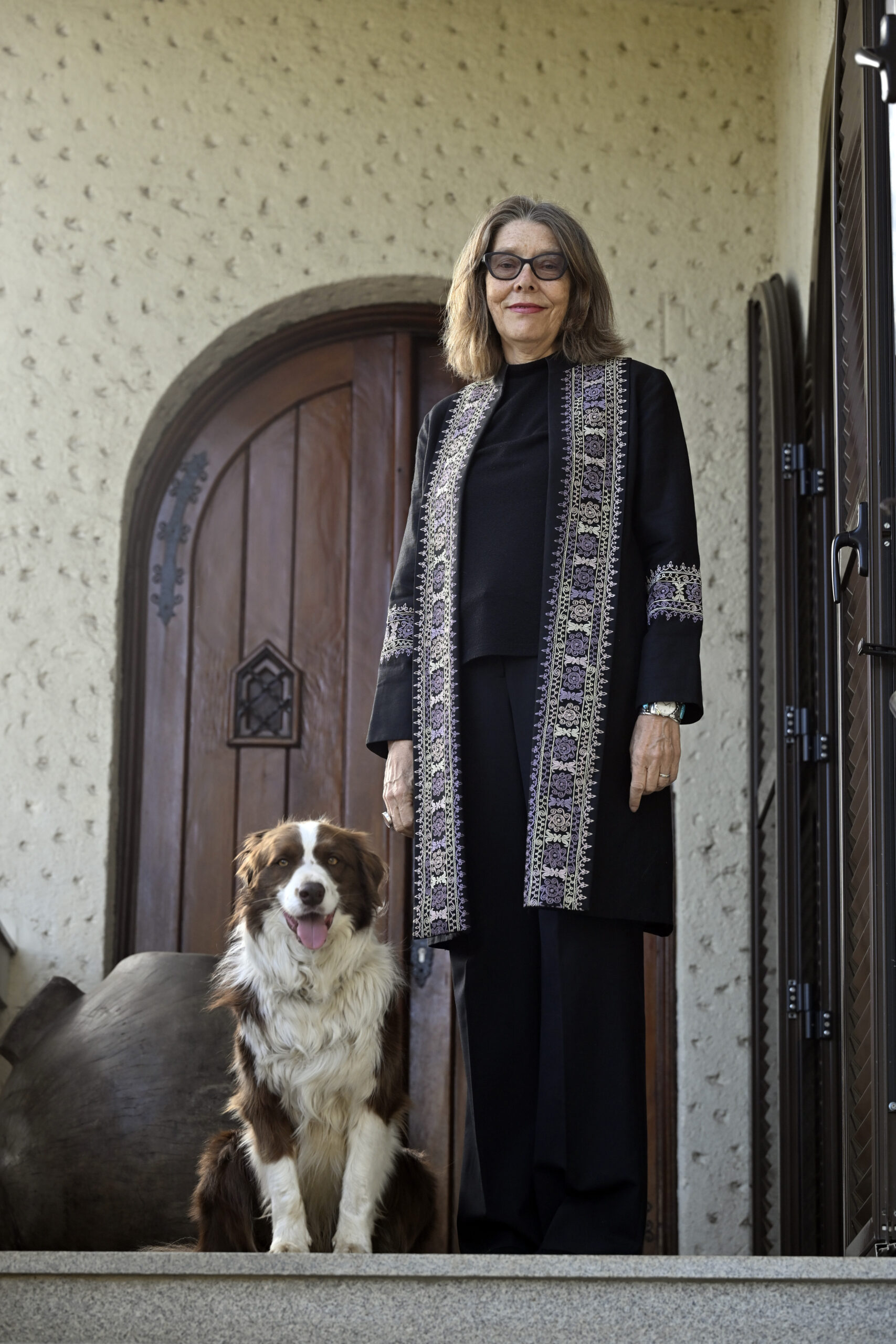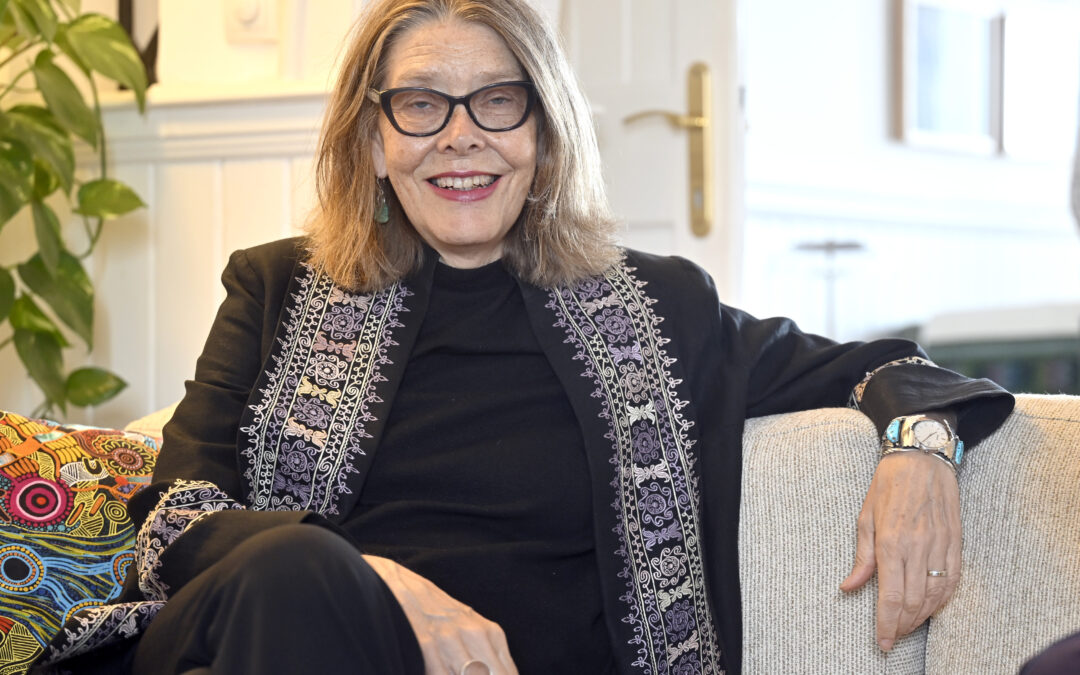OUR BLOG
H.E. Mrs Pernille Dahler Kardel, Ambassador of the Kingdom of Denmark: Faith in Humanity Is Something We Can Learn from You
Pernille Dahler Kardel is not just an experienced diplomat – she is a keen observer of social trends, a nature enthusiast, a supporter of open dialogue, and a lover of cities with rich histories. Together with her dog Bilabong, she enjoys wandering the streets of Belgrade and meeting the people who make this city so unique.

For the purposes of this interview, she welcomed us at the Dedinje residence that has housed Danish ambassadors for decades. Our conversation touched on the essence of modern diplomacy – above all, interstate cooperation, trust-building, as well as green transition and institutional transparency and reform. “Faith in humanity is something we can learn from you,” says the Ambassador, openly expressing how deeply she has been moved by the hospitality and kindness of the people she has met in Serbia.
Serbia and Denmark established diplomatic relations in 1917 during a very turbulent historical moment for Europe. How do you view the historical development of both countries up to the present day? How would you describe the current cooperation between Denmark and Serbia, and what are the most important areas in which cooperation is developing?
Relations between Denmark and Serbia are good and getting better. Judging by the amount of ministerial visits to Serbia and the level of economic interaction between our countries, I would say that our joint efforts at intensifying relations have been quite successful. Every week we talk to Danish companies in Serbia, and from them I get the sense of an enormous potential for further cooperation. So that is what we work to fulfil every day. One of the most important areas – and perhaps overlooked– is the people to people relations. We clearly see an interest from students in Danish schools and universities to learn more about Serbia and to travel to this country that for many years was not a typical destination. Nowadays people see what Serbia has to offer, and they are forging close ties.

Which areas do you see as underutilized fields for cooperation and exchange of experience between Serbia and Denmark?
EU expansion. Denmark considers Serbia’s integration in the European Union as highly important – for Denmark as well as for Serbia. Denmark supports EU expansion which is why strengthening our partnership is also of great importance. I believe Denmark and Serbia have an invisible but very valuable shared currency– trust.
Denmark has high ranking in rule of law, anti-corruption and economic growth and by having close ties between our countries, we can share values and learn from good principles. I am certain that by sharing successful stories and practices, we have a much stronger foundation to build and transform systems. Green transition is a global challenge and therefore it requires solutions. Denmark, having experience with green transition since the 1970s offers quality and expertise on sustainable living.
Denmark has great experience and success with energy efficiency which has contributed in positioning Denmark as a climate front-runner. I am certain that this is an area where our partnership has the potential to grow stronger. By collaborating more on green transition, Serbia has a partner who offers sharp solutions to create more sustainable cities where citizens will breathe fresher air and live in a more sustainable way. At the same time, Denmark could learn much more about transitioning to greener industries in the Vest Balkan as Serbia has shown great dedication in leading the way to a greener path – Kragujevac being a city in which greener solutions in terms of energy efficiency being actively integrated in some institutions. Danish companies have already established a strong partnership with Serbian companies, public and private institutions which shows that Serbians consider Danish practice and expertise as highly valuable. Danish companies like Grundfos and Danfoss are already operating and collaborating in Serbia.
Moreover, Serbia has a rich cultural heritage. Looking at the creative industries in Denmark, I see potential for greater collaboration on art, architecture etc.

In July of this year, Denmark will assume the presidency of the Council of the European Union. What will be the priorities duringits presidency?
As the world is changing day by day, we are also likely to adapt our priorities as we get closer to the presidency. That said, I am sure certain issues will remain high priority. One is Ukraine. Denmark has been and will remain one of the strongest supporters of Ukraine’s fight against the Russian full scale illegitimate war in Ukraine. Of course, we are hoping that just and lasting peace can be found soon. A focus on Ukraine also deals with ques- tions of European security and stability. A war in Ukraine has affected Europe and the international community as well, in different areas, both economically, security wise -meaning the risk of stability is at stake. Second, enhancing European competitiveness will remain very important. And third, enhancing the European defence industry as we all are strengthening our defence capabilities. The fight against climate change will also remain of high priority. Denmark is a front runner with a 70% reduction goal for our CO2 emissions by 2030 (and net zero by 2050, preferably before). And we are well underway to achieving this goal based on very ambitious sector plans.There is definitely scope for more cooperation on green transition with Serbia as we all redouble our efforts to achieve these goals.
You can read the full interview in our DIPOS Magazine.








 2018
2018